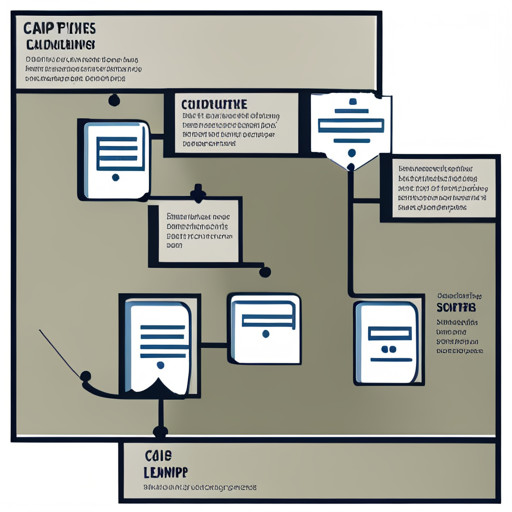Mastering the Camp Lejeune Claim Process from Start to Finish
This article provides a comprehensive guide to the Camp Lejeune claim process. It sheds light on its intricacies from inception to completion. The guide offers valuable insights into the initial steps of the process. It explains the essential filing practices that need to be followed.

The article also highlights potential challenges that individuals may encounter during the claim process. It provides strategies for overcoming these challenges and ensuring successful outcomes.
Overall, this information is instrumental for individuals seeking an in-depth understanding of this complex procedure.
Key Takeaways
- Veterans stationed at Camp Lejeune between August 1, 1953, and December 31, 1987, are eligible for compensation if they were diagnosed with specific illnesses linked to contaminated water.
- Claim eligibility is determined by the duration of service at Camp Lejeune and the presence of specific medical conditions.
- Documentation requirements include a comprehensive medical report, proof of service at Camp Lejeune, and supporting documents establishing a clear link between the health condition and exposure to contaminated water.
- Navigating the claim process can be complex, and seeking professional guidance from experienced attorneys specializing in veteran claims is recommended.
Understanding the Basics of the Camp Lejeune Claim Process

Understanding the fundamental aspects of the Camp Lejeune claim process is essential in navigating this complex administrative procedure. To ensure a successful outcome, two primary factors must be sufficiently comprehended: claim eligibility and documentation requirements.
The first element, claim eligibility, pertains to who qualifies for compensation under the provisions established by the Department of Veterans Affairs (VA). Primarily, veterans who were stationed at Camp Lejeune for no less than 30 days between August 1, 1953, and December 31, 1987 are eligible. Further stipulations state that these veterans must have been diagnosed with one or more specific illnesses believed to be linked to contaminated water at said military base.
Documentation requirements form the second part of this process. This includes a comprehensive medical report indicating the diagnosis of any conditions listed as presumptive diseases by the VA. Also required is proof of service at Camp Lejeune during the specified period. This evidence could be in the form of official military orders or base housing records.
Navigating the Initial Steps in the Claim Process

Understanding the preliminary measures in the procedure for seeking compensation is important, as it sets the stage for a potentially successful resolution. However, navigating these initial steps can be complex due to the intricate legalities and bureaucratic processes involved.
Thus, professional guidance from experienced attorneys specializing in veteran claims may prove helpful. They offer expertise in interpreting eligibility criteria, collating necessary documentation while ensuring confidentiality, and submitting well-prepared claims within set deadlines.
Furthermore, understanding that this process can evoke distressing memories or emotions is important. The path towards compensation should focus on meeting legal requirements and provide empathetic support to alleviate psychological stress associated with recalling past events.
Crucial Tips for Filing Your Camp Lejeune Claim

Navigating the steps involved in filing for compensation necessitates understanding some essential tips that can potentially streamline this task and increase the chances of a favorable outcome. The claim documentation is an important aspect of this process and requires meticulous attention to detail and thoroughness. It involves recording every medical appointment, treatment, and diagnosis related to the health condition for which compensation is sought.
Additionally, evidence gathering plays a crucial role in substantiating a claim. It includes obtaining copies of medical records, doctors' notes, laboratory test results, and other documents supporting the claimant's case. Evidence gathered should conclusively link the illness or injury with exposure to contaminated water at Camp Lejeune.
Furthermore, knowledge about deadlines is critical, as missing these could result in denial of claims or compensation delays. Therefore, filing all necessary paperwork well ahead of time is advisable.
Another key tip revolves around communication with Veterans Affairs (VA). Establishing an open line of contact with VA officials helps track your case's progress while ensuring no important information slips through the cracks.
Lastly, seeking help from professionals such as experienced attorneys or veterans service organizations might prove beneficial, given their expertise in handling such claims. They can guide you through each step while ensuring compliance with regulations and requirements set by VA.
Mastering the process entails careful planning coupled with diligent record-keeping and evidence collection, meeting deadlines, maintaining good communication with the VA, and, when deemed necessary—seeking professional assistance.
.
Ensuring Success in the Final Stages of the Claim Process

Achieving desired outcomes in the final steps of the compensation procedure requires meticulous organization, comprehensive documentation, and strategic planning. Consideration must be given to appeal strategies, and documentation's importance is important.
Appeal strategies play a vital role in ensuring success at this stage. Detailed knowledge about different types of appeals, such as direct review, evidence submission, or hearing options, can help determine which route would best serve the claimant's interests. Each strategy has its own advantages and potential drawbacks; thus, careful consideration should be taken before proceeding.
The application process necessitates exhaustive documentation to substantiate claims. Documentation serves as concrete proof that can sway decisions in favor of the claimant. It involves providing medical records, service records, buddy statements, or any other relevant evidence that may support one's case. The absence of proper documents might lead to denial or deferral; hence, gathering all necessary paperwork promptly is important.
Moreover, strategic planning underpins every step towards successfully completing the compensation procedure. The plan should include researching precedents set by previous cases and consulting with experts with deep experience handling similar claims. This provides insights into potential pitfalls and helps anticipate challenges that might arise along the way.
Frequently Asked Questions
What Are Some Common Reasons for Denial of a Camp Lejeune Claim?
Common reasons for denying a Camp Lejeune claim often include insufficient claim evidence and lack of comprehensive medical documentation, which are crucial in demonstrating the link between exposure and resultant health conditions.
How Long Does the Camp Lejeune Claim Process Typically Take From Start to Finish?
The duration of the Camp Lejeune claim process is contingent on various factors, including thoroughness of claim documentation and adherence to eligibility criteria. It may range from several months to a few years.
Are There Any Additional Resources Available for Individuals Struggling With the Camp Lejeune Claim Process?
Numerous resources exist for those encountering difficulties with the Camp Lejeune claim process, including detailed information on Claim Eligibility Criteria and Support Organizations Overview, which can provide crucial assistance and guidance.
What Happens if a Camp Lejeune Claim Is Denied, and What Are the Options for Appeal?
If a Camp Lejeune claim is denied, the impact can be substantial. Options for appeal are available and require meticulous preparation, including gathering necessary documentation and substantiating evidence to challenge the initial decision.
Can a Lawyer or Legal Representative Assist With the Camp Lejeune Claim Process, and if So, How?
Yes, legal representatives can significantly assist in the Camp Lejeune claim process. Their expertise aids in navigating complex procedures, understanding the fees involved and choosing the right attorney to ensure a successful appeal if necessary.
Conclusion
The process of filing a Camp Lejeune claim can be intricate and daunting. However, claimants can navigate this journey more confidently with a comprehensive understanding of the process—from initial steps to overcoming challenges and ensuring success in the final stages.
It is essential to be well-informed about the procedures, guidelines, and potential obstacles in order to make informed decisions throughout this process.
Successful navigation through the Camp Lejeune claim process becomes achievable through meticulous attention to detail and empathetic understanding.




